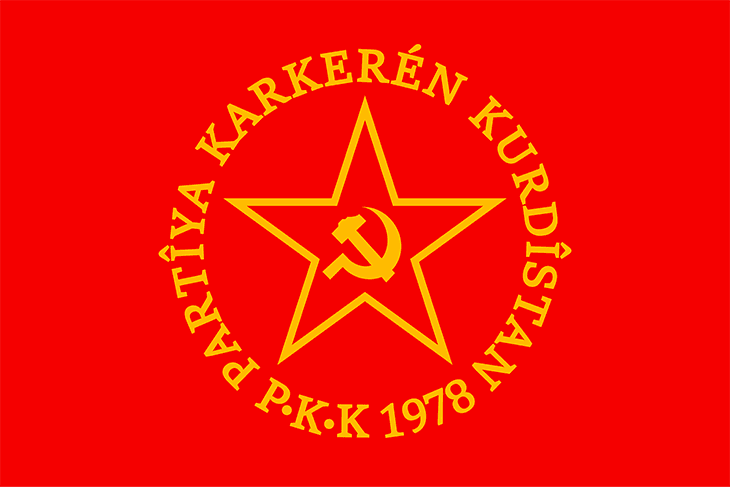

In a seismic shift that could redraw the map of conflict in the Middle East, the Kurdistan Workers’ Party (PKK) — one of the world’s longest-resisting militant movements — has vowed to permanently lay down arms after four decades of armed rebellion. In a bold declaration of transformation, the group has pledged to pursue its vision for Kurdish autonomy not through bullets, but ballots.
The announcement came after the PKK’s 12th Party Congress in early May, where top commanders and political ideologues agreed unanimously: the dream of a democratic Kurdish homeland is best realized through political means — not guerrilla warfare.

This is not just a ceasefire. This is the end of an era. After 40 years of violent insurgency against the Turkish state — a campaign that claimed over 40,000 lives and displaced countless more — the PKK is effectively dissolving its military apparatus. And the reverberations are being felt far beyond Turkey’s borders.
The group, long branded a terrorist organization by Ankara and several Western nations, has been a symbol of both resistance and controversy. But now, it appears, the PKK is embracing a new identity — that of a political actor.
An affiliated news agency stated that the group now “believes that Kurdish political parties will assume their responsibilities to develop Kurdish democracy and ensure the formation of a democratic Kurdish nation.” This is more than a change in tactics — it’s a transformation in ideology.
The movement’s reformation was catalyzed by a powerful, long-distance appeal from its imprisoned founder and ideological linchpin, Abdullah Öcalan, who remains incarcerated on a remote Turkish island. In a statement that could echo through Kurdish history books, he declared: “I am making a call for the laying down of arms, and I take on the historical responsibility of this call.”
Öcalan’s voice may be confined to prison walls, but its message has unleashed a tidal wave of hope — and scrutiny.
Significantly, the Kurdish-majority political party DEM, the third-largest in Turkey’s Parliament, helped broker and push forward the disarmament decision. Tayip Temel, a senior DEM leader, told Reuters the move will not only affect Turkey but will also ripple across the Kurdish diaspora in Syria, Iraq, and Iran. He emphasized that this shift marks a “major shift” in Turkish politics and opens the door for more inclusive governance.
While some skeptics warn of political hurdles and a long road to reconciliation, there is undeniable momentum toward peace. The President of Iraq’s semi-autonomous Kurdistan Region, Nechirvan Barzani, applauded the decision, calling it a beacon of political maturity and a chance for true coexistence. “It lays the foundation for a lasting peace that would end decades of violence, pain and suffering,” Barzani said, noting that the Kurdish leadership in Iraq is committed to supporting “this historic opportunity.”
Even Turkish President Recep Tayyip Erdoğan — whose government has had a volatile relationship with Kurdish factions — echoed that phrase, labeling the decision “a historic opportunity” for lasting peace. Whether Ankara will now extend meaningful democratic reforms or remain entrenched in nationalist rhetoric remains to be seen.
What is clear is that this moment has been decades in the making. For the Kurdish people — a population of over 30 million spread across four nations — the PKK’s shift marks a potentially monumental chapter in their centuries-long struggle for recognition, rights, and self-determination.
But this transformation didn’t happen in a vacuum. Years of Kurdish-led democratic organizing, grassroots mobilization, and international advocacy helped create the political infrastructure necessary to support this pivot. The decision to disarm isn’t surrender — it’s strategy. A loud, deliberate shift to the political stage where the Kurdish cause can no longer be dismissed as insurgency, but must now be debated, legislated, and — hopefully — ratified.
Still, the path forward is fraught with challenges. Reconciliation efforts will need to address long-standing grievances, human rights abuses, and decades of systemic marginalization. Trust must be rebuilt not just between Kurds and the Turkish state, but within Kurdish communities that have suffered internal divisions and ideological splits.
But for now, history is being written in real time.
A movement born in the mountains and scarred by war is coming down to the valley — not to fight, but to vote. The PKK’s choice to transition from an armed struggle to a political campaign is not just symbolic. It’s revolutionary.
If the Kurdish dream has often seemed like a mirage in the desert of Middle Eastern politics, today, it just moved closer to becoming a reality.
What are your thoughts? Please comment below and share this news!
True Activist / Report a typo







